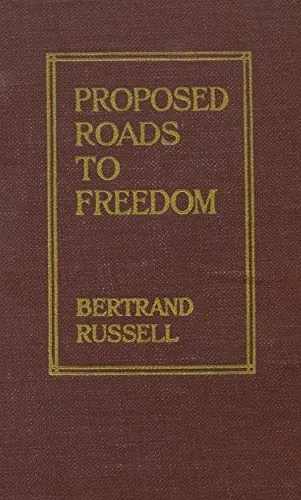
Proposed Roads to Freedom SOCIALISM, ANARCHISM AND SYNDICALISM PART I HISTORICAL CHAPTER I MARX AND SOCIALIST DOCTRINE SOCIALISM, like everything else that is vital, is rather a tendency than a strictly definable body of doctrine. A definition of Socialism is sure either to include some views which many would regard as not Socialistic, or to exclude others which claim to be included. But I think we shall come nearest to the essence of Socialism by defining it as the advocacy of communal ownership of land and capital.
Communal ownership may mean ownership by a democratic State, but cannot be held to include ownership by any State which is not democratic. Communal ownership may also be understood, as Anarchist Communism understands it, in the sense of ownership by the free association of the men and women in a community without those compulsory powers which are necessary to constitute a State. Some Socialists expect communal ownership to arrive suddenly and completely by a catastrophic revolution, while others expect it to come gradually, first in one industry, then in another. Some insist upon the necessity of completeness in the acquisition of land and capital by the public, while others would be content to see lingering islands of private ownership, provided they were not too extensive or powerful. What all forms have in common is democracy and the abolition, virtual or complete, of the present capitalistic system. The distinction between Socialists, Anarchists and Syndicalists turns largely upon the kind of democracy which they desire.